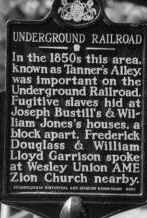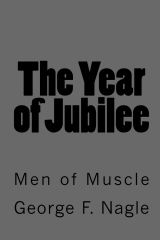
Study Areas:
Anti-Slavery
1876: Death of William Whipper
1876 William Whipper, a prominent Columbia (Lancaster County) businessman and staunch advocate of African American rights, dies in Philadelphia. Born a slave in Lancaster County, Whipper rose to prominence in Columbia's dynamic African American community and entered into a profitable business partnership with lumber merchant Stephen Smith--another ex-slave from Pennsylvania. Whipper became active in the anti-slavery movement in the 1830's publishing an address in the Colored American newspaper with the title "An Address on Non-Resistance to Offensive Aggression." The address advocated the use of passive resistance as a means to obtain results consistent with peaceful intent.1
In Columbia, Whipper and Smith welcomed freedom seekers crossing the bridge between Wrightsville, York County, and Columbia, Lancaster County. They provided food, shelter and transportation to points further east, placing some fugitives in false-end boxcars for the trip to Philadelphia. Whipper edited the newspaper, The National Reformer, a publication of the National Moral Reform Society.
The obituary of William Whipper appeared in the Philadelphia newspaper The Christian Recorder, March 30, 1876:
OBITUARY.
BY J.A. NEWBY.
A truly great man has fallen. On Thursday the 9th inst. in this city, Wm. Whipper departed this life. He was born in Lancaster Co., Little Britain Township, Pa., in 1804 and was consequently at the time of his death 72 years old. He was truly a philosopher, statesman, financier, and reformer in a quiet and unostentatious way.He had truly the welfare of the his race at heart, and during the days when Fugitive Slave Laws graced our Statute Books, he was ever found ready to give the panting fugitive food and shelter; and with his means he would send him on his way rejoicing to the land of the free and the home of the brave (otherwise her Majesty's Dominion.)
He was not a flippant babbler, but advocated the doctrine that one great action was worth a volume of words. It is said that his father died when he was quite a lad and he was left to the care of his mother; and a gifted writer in speaking of his death, says he was bred like the early Roman mothers bred their sons, and nursed them on the milk of honesty, and reared them up with rigid ideas of honor and virtue.
He knew also what it was to rough it in the world in his early days working at whatever he could find to do to earn an honest livelihood. When a young man he kept a grocery in Philadelphia, Pennsylvania, with the late Stephen Smith, and by ardent perseverance and rare business tact, he amazed quite a competency for his declining years. In 1872 he took charge of a branch of the Freedman's Bank in this city, which position be filled with great credit until its unfortunate suspension; and when a commission was appointed by Congress to settle up the affairs of the Bank, his accounts stood without a blemish. It is thought however, so deeply did he take to heart the failure of the Bank, many are under the impression his days were shortened in consequence; and what is most remarkable in the character of this great man, it is said he never went to school but nine days in his life, truthfully illustrating the old proverb, that “education to the mind is what a block of marble is to the scripture.”
Mr. Whipper had no children of his own but raised quite a number of nieces and nephews. One of the Journals of our city in speaking of the deceased, says we need a Moody to preach honesty and a Sankey to sing uprightness; but it seems that we need just what Mr. Whipper has left us, the irradiating presence of warm vitalizing example: but the most and feature of all is that all our great men amongst us are taking off and there are there are none to take their places. “Requiscat in pace.”2
Notes:
1. The Colored American, September 9, 30, 1837.
2. The Christian Recorder, March 30, 1876.
 Covering
the history of African Americans in central Pennsylvania from the colonial
era through the Civil
War.
Covering
the history of African Americans in central Pennsylvania from the colonial
era through the Civil
War.
Support the Afrolumens Project. Buy the books:
The Year of Jubilee, Volume One: Men of God, Volume Two: Men of Muscle

